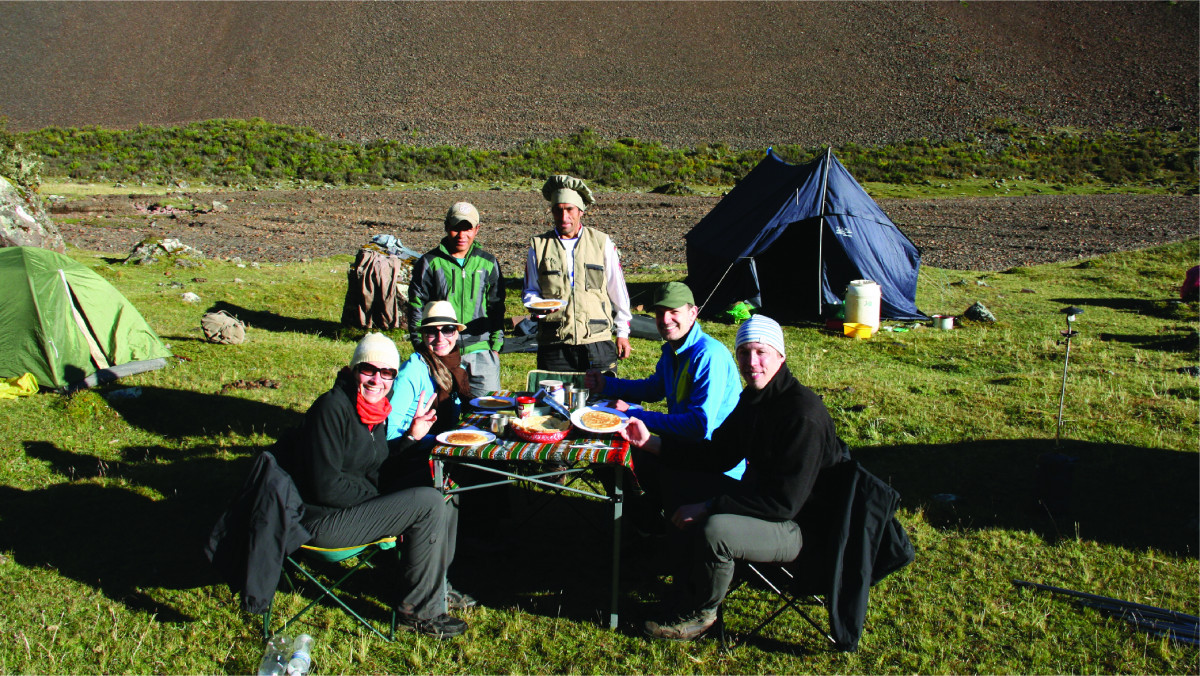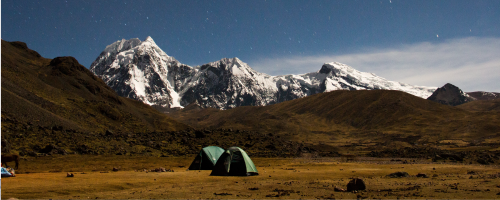
For those of you who love camping, there is bad news: even camping does have an impact on the environment! The good news is that you have opted for one of the greenest traveling option.
However, even when you don’t realize it, you always leave something behind once you abandon the camp- and it’s not “just footprints”. What kind of detergent did you use for dishwashing? How did you dispose of your waste? What kind of repellent did you put on?
At Andean Adventures, we are fully committed to environmental sustainability and the reduction of our carbon footprint. In fact, we make sure that the tours we operate on the Inca Trail -and all of the adventurous treks you can experience with us- have close to no impact on the environment. How do we do that? By reusing, recycling and using eco-friendly products.
We do that every time we go on a trek with our clients, with no exceptions! And you can do the same next time you go camping. Based on our extensive experience, here’s 10 smart, but simple tips you can follow to make your camping greener.
1. No plastic, please
Using disposable bags and water bottles has a huge impact on the environment. Even if you do not throw them away into the wilderness, they contribute to the global waste disposal crisis. Therefore, take your time to pack your food and drinks in a sustainable way, using reusable food containers, bags, and bottles.
2. Don’t just throw it away
In one way or another, you will produce some waste while camping. It’s inevitable. But make sure you dispose of it properly, following the campsite norms. Whenever possible, separate your waste for recycling.
3. Eco-dishwashing
Water is the main source of life and too often campers pollute it with chemical dishwashing soap. Mostly, they are not even aware of it. Next time you go camping, make sure you buy and use organic, eco-friendly, biodegradable soap.
4. Green showers
Are there showers in your campsite? Are you considering getting cleaned up in the river? Then, use an eco-friendly shower gel, with the same properties as the soap we have mentioned above.
5. Protect your skin, and the environment too
Sunscreen and insect repellent are important allies for campers who want to protect their skin from sunburns and mosquito bites. Most of us would buy chemical products, without knowing that they have a big impact on the environment, especially when we decide to dip into the waters of lakes, rivers, or the sea. Instead, buy organic sunscreen and repellent, which are safer for the environment and delicate on your skin.
6. Rocks are not souvenirs
While camping and/or trekking, you will have the chance to admire beautiful flowers, interesting rocks, and even ancient archeological remains. Do not take them away! Aren’t they beautiful where they are? Too many wonderful natural landscapes have already been irretrievably damaged by tourists taking home “a little souvenir”.
7. Follow the rules
Every campsite or protected natural area has rules that have been established for the sustainability of the site itself. Even if they seem silly, or negligible, they are not. So if you are told not to go to a certain area, or to refrain from stepping on a certain soil, please don’t.
8. Solar power!
Using flashlights and lanterns instead of making a fire is already a good choice. But it would be even better if, instead of using normal batteries, you opted for solar powered ones!
9. Buy local
When packing up for camping, try to buy local products in order to boost the local economy and support “Km-0”.
10. Careful planning for no leftovers
As you will have understood, packing is key to sustainable camping. So when you are packing food for your holiday, make sure you carefully estimate the amounts you need. Leftovers tend to go wasted when camping.
